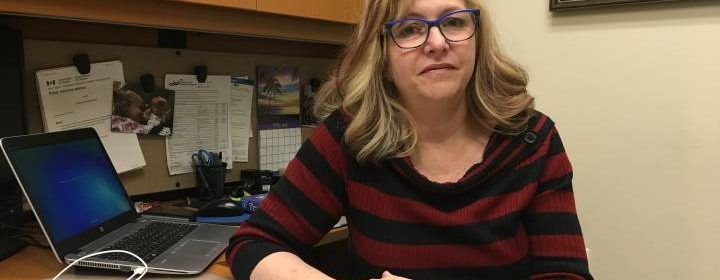Calls about measles vaccine doubled in two days, says Nova Scotia Health Authority

The Nova Scotia Health Authority (NSHA) says incoming calls about where to get the measles vaccine have doubled in the last two days, after reports of a possible measles exposure in Halifax earlier this month.
It’s an encouraging sign, said central zone health protection manager Carla-Leah Hmidan — it means people are paying attention and taking a safety-first approach to public health.
In a Tuesday interview, she told Global News that after the measles exposure incident, the risk of contracting the virus in Halifax remains very low.
But as a precaution, the NSHA is encouraging residents to check their immunization records, and ensure that they’ve got two shots of the MMR vaccine for measles, mumps and rubella.
“Certainly you know, this was a case from New Brunswick that was in one of our facilities, but if we start to see other cases that is significant and will require us to have ongoing follow-up,” she explained.
On April 17, an individual travelled through the city and visited the emergency department at the Halifax Infirmary on Robie Street on for symptoms unrelated to measles. Officials later confirmed that the person developed measles afterward and was contagious at the time of emergency department visit in Halifax.
“It’s a good reminder that measles is only a plane ride away, that we’re sharing the air of the planet together as a human community and measles somewhere else is measles here,” said Dr. Joanne Langley, associate director of the Canadian Centre for Vaccinology.
“So we all need to make sure our immunization is up to date.”
Nova Scotia doesn’t have a publicly accessible vaccination registry, but patient immunization records are usually available through the public health system, or one’s personal health-care provider. Hmidan said residents will have to make that phone call and sign a release-of-information form, either in person, through email or fax.
Measles is an airborne virus that is spread through breathing, speaking, coughing or other forms of close personal contact. Its symptoms include a fever, cough, runny nose and red eyes; a red, blotchy rash on the face that spreads down the body; sleepiness and irritability; and small white spots inside the mouth and throat.
Most people fully recover within a few weeks, but measles can have serious complications, which are more likely in infants, pregnant women and those with weakened immune systems.
The vaccine is typically provided twice in early childhood, but those born before 1970 are presumed to have immunity through natural exposure.
If you’re unsure whether you’ve been vaccinated, or whether you need to be vaccinated, said Langley, there’s no harm in getting another dose of the vaccine. Unlike the flu vaccine, which sometimes runs out during peak season, there’s no shortage of MMR (measles, mumps, and rubella) availability.
“That would be the main message,” she said.
“Take responsibility for your own health. If you don’t have records get some and start keeping track of your vaccines and making sure you’re up to date for every kind of these deadly diseases that you can prevent through a simple vaccine.”
She suggested that Nova Scotia may not have seen the same level of outbreak as other places in Canada first, because as far as local doctors know, most people in the province are vaccinated, and second, because the Maritimes don’t experience as much domestic and international travel.
— with files from The Canadian Press
Sign up for our Health IQ newsletter
© 2019 Global News, a division of Corus Entertainment Inc.
Source: Read Full Article
